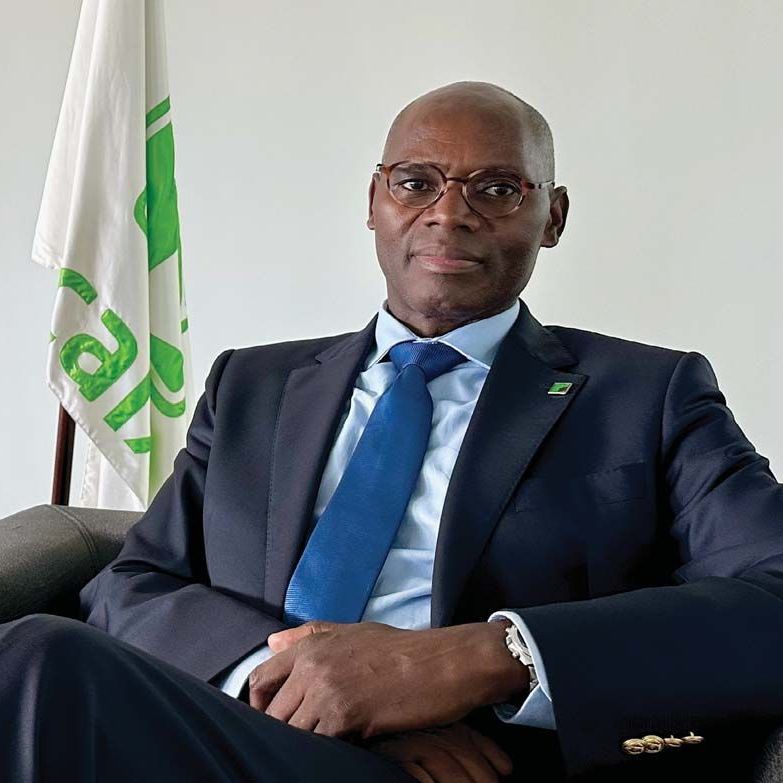Caixa Económica: one of the leading financial institutions in Cape Verde.

How do you describe the role that Caixa Económica plays in the economy of Cape Verde?
Caixa Económica is currently one of the leading financial institutions in Cape Verde, not only due to its size and national presence, but also due to its role in loans provision and its active contribution to the country's development. We are driven by a strong ambition to support Cape Verde’s sustainable development. It is one of the oldest institutions in the country and will celebrate its centenary in 2028. We started out as a postal savings bank and evolved according to the country’s growth and development into a universal bank in 1993, marking over 30 years in our current format.
Caixa Económica’s transformation and evolution have led it to become a major player in Cape Verde’s financial system, not only by its size but also by the strength and soundness of its financial indicators.
The bank approved a policy of sustainability in 2023. How does the bank integrate this policy at all levels and how does this translate to the financing of new projects?
Caixa adopted this policy in line with its mission, which is to contribute to the sustainable economic development of the country. Within the policy there are several components.
The first component is related to the selection of the projects we finance. The eligibility condition for Caixa is to have a qualified promoter, and to have a project that is profitable and sustainable, both on the social and the environmental level. All projects that meet the requirements are eligible for loans, focusing on the diversification of the economy and giving further support to the current drivers of the economy, such as large scale tourism projects.
Our role is to offer high quality global financial services that support sustainable economic development across Cape Verde.
A second pillar of the sustainability policy is our human capital policy. Investing in our people is extremely important, not only to have the best-qualified human resources on the market, but also to receive commitment and engagement in return. We are currently providing English classes to our staff, to further the internationalisation of the Cape Verde economy.
Digitising the bank, adding new technologies, and meeting cybersecurity challenges require more training if we are to keep meeting the best international standards.
The last pillar is community. Financial inclusion is a formal part of our mission. To support this, we ensure universal access to banking services. For instance, we participated in the World Bank's Universal Financial Access 2020 initiative and were internationally recognised for our achievements in this area.
We have the most extensive branch network in the country, with coverage across all islands and municipalities. Our partnership with the national postal service further expands our reach, making it easy for people to open accounts even in remote areas. We also invest in financial literacy. Every October, which is savings month, we run programmes in schools, and we are part of the World Saving Bank Institute. We are very active in financial literacy. On our website, we regularly publish content covering topics such as financial access, payment instruments, and responsible borrowing.
In addition, we run a microcredit programme –unique among local banks – which primarily supports women, especially those heading households, to engage in small income-generating activities. We also refinance micro-finance institutions through refunding credit facility, and manage government-backed credit lines in areas such as agriculture, fishing, and food security.
How is Caixa leveraging technology to enhance financial inclusion and open doors for fintech investment?
We have long been the most technologically advanced bank in the country. We led the way in modernising banking systems, introducing solutions that set standards and are still in use today. It was Caixa that brought Western Union to Cape Verde. We were also the first institution to offer credit card solutions to our top clients, even before Cape became a member of credit card brands. We were one of the first to launch internet banking services and we continue to lead with one of the most sophisticated mobile apps on the market.
We remain fully committed to digital transformation. For example, we are preparing to digitise account opening processes and other customer forms. We are also supporting the development of fintech.
Through a partnership with Cabo Verde Digital, we have launched the Fintech Islandz Hub initiative, creating incubation conditions for tech companies to develop financial solutions internally. We believe in building coding skills and human capital development, and we are seeing success. Computer programming is a space where the country can truly compete —one does not need large scale infrastructure, just talent.
Training young people in this area is one of the best invest-ments a country can make.
What makes Cape Verde a compelling proposition for investors?
Cape Verde is a small market in terms of size, but it serves as a strategic platform –a gateway to the continent. We are part of ECOWAS, the Economic Community of West African States, which represents a market of around 300 million people with immense potential. There is strong demand in infrastructure across the region. Agriculture, fishing, and mining offer many opportunities.
As a member, Cape Verde enjoys access to this wider market. We also have long-standing privileged relationships with countries like Guinea-Bissau which make access and doing business easier.
Cape Verde can be used as a springboard into the region, leveraging our human resources skills, and qualification.
